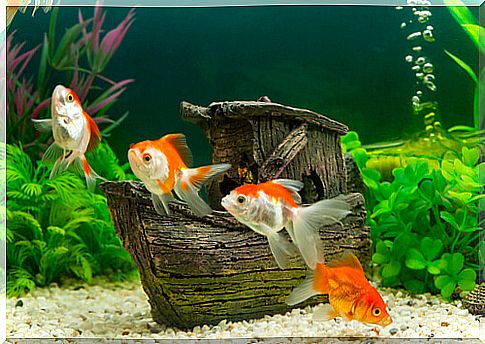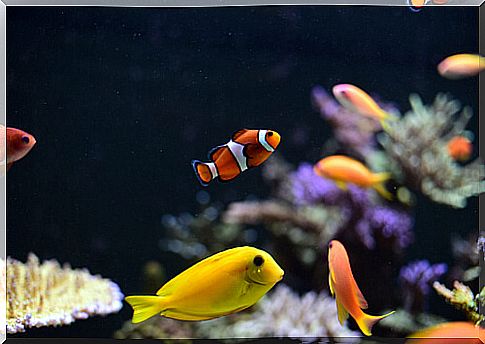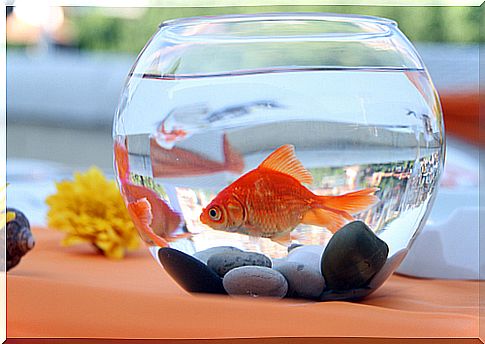Maintenance Of The Fish Tank In Winter

The maintenance of the fish tank in winter is key to maintaining the health of your fish with the arrival of the cold. Therefore, we invite you to learn 5 tips so that low temperatures do not threaten the balance of your aquarium.
Knowing the body temperature of fish better
Most mammals, including humans, are endotherm. It means that they are capable of generating heat and heating their body tissues through their own metabolism. For this reason, they are known as “warm-blooded animals”.
Most fish, like reptiles and amphibians, are ectotherms. Your body is unable to produce heat. Actually, it is external conditions that determine your body temperature. Therefore, they are capable of undergoing large differences and changes in temperature. These “cold-blooded animals” use external sources to heat or cool themselves.

Marine conditions
Fish in the sea usually regulate their body temperature by their behavior. Different from mammals, which do it by physiological methods.
The deeper bodies of water in the ocean are colder, while the shallow ones are warmed by the sun’s rays. Fish with the greatest thermoregulatory capacity remain in a deep layer of water, without migrating in winter. On the other hand, less thermoregulatory fish tend to look for the warmest water beds where their organism adapts.
5 tips for an ideal maintenance of your fish tank in winter
-
Suitable temperature
Having a fish in an aquarium means recreating the temperature of its natural habitat to enable its development. According to specialists, about 70% of fish species are native to temperate waters.
Therefore, when we have a fish tank in winter in Europe, it must have an efficient heating system.
A thermostat or measurement system is also important to regulate and control the temperature inside the fish tank. Fish can also suffer from overheating of the water.
Whenever we talk about heating, it is essential to reaffirm the importance of properly ventilating the environment. Part of the window should be left open throughout the day, avoiding any accident or poisoning.
Many specialists argue that the fish tank’s water circulation pump should be turned off in winter. Mainly when it comes to many different fish living in large ponds.
-
Choosing the ideal location for your fish tank
Buying a good, spacious fish tank is only the first step in taking care of your fish. Choosing the ideal location is essential to condition the environment where marine species grow and develop.
An aquarium should never be left out in the open. Cold and heat strokes are very dangerous for the health of fish. Ideally, you should prefer a ventilated environment with a good incidence of sunlight.
Feng Shui indicates placing the fish tanks on the right side of the windows. Preferably, in the north of the home or work environment. This arrangement would be perfect to provide good energy to the environment.
-
Balanced diet in winter
Most species adopt natural changes in their eating habits during the winter. And fish are no exception.
When we have adequate heating, the fish should be fed 2 to 4 times a day. As long as the temperature is higher than 12ºC.
But when choosing to let the fish go into hibernation, feed should be offered only 1 time per day. This practice respects dietary changes, but requires a lot of care. And, in addition, a permanent control of the temperature of the fish tank in winter.

And how do you know if your fish tank is well balanced?
The best way to find out if the waters in your tank are well balanced is to observe the behavior of your fish. These animals are very sensitive and easily demonstrate the symptoms of inappropriate conditions.
When the temperature inside the tank is balanced, the fish tend not to show great changes. They continue their characteristic summer feeding and swimming routine.
But if the aquarium waters turn cold, the fish fire up their survival skills. Above all, they remain immobile at the bottom of the tank, avoiding circulating in the aquarium.
This same behavior can be caused by the cold or by an unbalanced diet during winter.
Fish need redoubled attention with the arrival of the cold. Properly maintaining your fish tank in winter is the best way to protect them.









